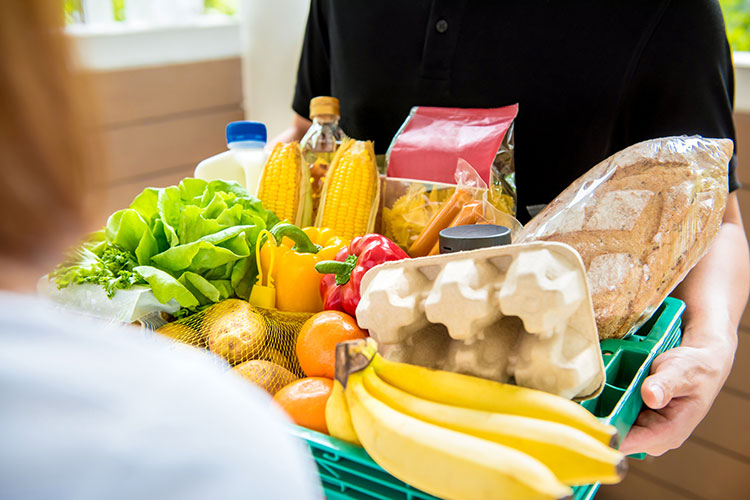As 2021 comes to a close, uncertainty continues to reign in many areas of everyday life, including how people source and eat their foods.
Over the past 12 months, several trends stand out in the world of baked goods. Look for many of them to have real staying power in the years ahead, pandemic or no pandemic.
Near the top of the list is online ordering. Orders soared at the height of the pandemic as consumers sought to social distance and keep themselves as safe as possible. At the time, it was unclear how much of that surge would recede once conditions improved.
The verdict is in: while people have returned to their brick-and-mortar stores, online shopping trips remain higher than they were pre-pandemic. The “average” shopper of 2022 and beyond will likely be a hybrid shopper — some online, some in-person.
Simple is better
Another trend that gained new urgency during COVID — increased attention to labels, quality, shelf life and food safety — is also here to stay, according to industry analysts. Consumers are emerging from the pandemic with renewed commitment to simple labels and ingredients.
The more help bakers and manufacturers can get to help meet these and other consumer demands, the better. One example is Lenexa, Kan.-based Corbion’s Ultra Fresh® portfolio — a comprehensive freshness solution that protects the quality of finished products and ensures they stay fresher, longer.
For bakers who are looking for naturally derived baking solutions that remove unfriendly conditioners and oxidation systems — and all with a cleaner ingredient declaration — there’s Corbion’s Pristine® family of dough improvers.
To keep sweet goods fresher longer, Corbion’s Ultra Fresh® Sweet is a revolutionary new enzyme solution designed for that specific task. A high-performing alternative to simple enzymes, gums, starches and sugars, Ultra Fresh® Sweet delivers up to 45 days or more of superior eating quality and ensures sweet goods maintain their fresh baked taste, no matter how challenging their environment.
Plant-based: beyond protein
Plant-based is another trend that accelerated during COVID and that will be around long after the pandemic peak has passed.
The Impossible Whopper and other plant-based meat products have generated most of the headlines. And at the height of COVID, many turned to plant-based proteins to make up for the lack of traditional product on grocery shelves.
But plant-based trends are making their presence felt throughout the food industry, including baked goods. Benefits include an overall healthier balance between macronutrients, like putting emphasis on protein in general, and sticking to diet related menus such as keto products. Eating for immunity and overall vitality are other reasons cited.
Obviously, baked goods, which are naturally “plant-based,” have a leg up on the competition when it comes to capitalizing on this trend. Baked goods manufacturers who take the next step — building on that solid platform by adding protein, reducing sugar, marketing their products as ketogenic, or emphasizing a variety of other health-first attributes — will only increase the momentum generated by having a plant-based product to begin with.
Use of plant-forward ingredients and heirloom grains such as spelt, einkorn, barley, quinoa, chia and chickpeas offer ways to formulate with the addition of more protein and fiber while also telling a story of sustainability and transparency.
To help its customers create plant-based options, Corbion’s naturally derived mold inhibitors are a perfect fit to ensure breads and rolls deliver the shelf life customers are looking for with ingredients label-conscious consumers appreciate.
Corbion’s award-winning Verdad® MP 100, for instance, is a naturally derived, proprietary combination of vinegar and natural flavor that matches the mold-inhibiting ability of calcium propionate. Verdad® MP 100 stops mold effectively without adversely affecting the flavor of the finished product.
Among the other trends that gained momentum in 2021 that should continue well into 2022 and beyond:
- With COVID receding, consumers are returning to their local bakeries and are looking for more fanfare. Bakers are looking to offer new, interesting experiences to their customers.
- Ethical Living. Companies are creating goals to help become more environmental, sustainable, and reducing food waste to become more ethically sound. Bakeries and manufacturers are purchasing materials and ingredients that align with their goals.
- The Sweet Spot. About half of consumers are looking to reduce sugar in their diets, so they turn to alternatives and balance. To some, the alternative is natural sugar as opposed to high fructose corn syrup. Others turn to natural alternatives like honey, agave, and Stevia.
COVID’s impact on the food industry in general and baked goods in particular will continue to be felt long into the future. Those manufacturers and bakers who recognize which pandemic-related trends will have staying power stand much to gain.


